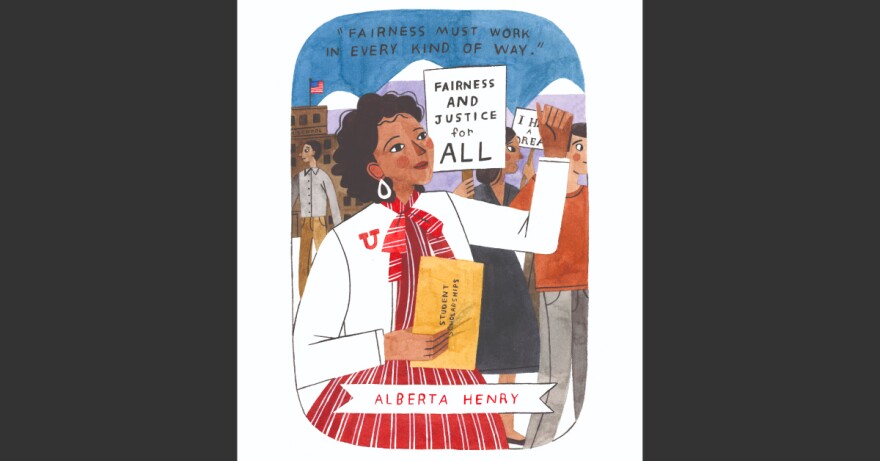This week, KUER is exploring the stories of Utah women who worked to further the cause of equal rights. The first woman cast a ballot in an election 150 years ago, but it took another half century, until 1920, to ratify the 19th amendment, which granted all women the right to vote.
But even then, those rights weren’t accessible to everyone. In our second conversation with Neylan McBaine, executive director of the nonprofit Better Days 2020, she told KUER’s Caroline Ballard the story of Alberta Henry, who fought for racial and educational equality in the mid-20th century.Caroline Ballard: Who was Alberta Henry, and what can we take away from her legacy?
Neylan McBaine: As we're celebrating these suffrage amendments, the first American woman's vote in 1870 — that happened here in Utah — and then the 19th Amendment, they were really only posts along a very long movement to extend civic rights to every American.
So as we look at these signposts, it's very tempting for us to say that the 19th Amendment was an end, and that's not the case. We have to recognize that both in 1870 and in 1920, the definition of who was a citizen and who had the right to participate civically were limited for people of color.
Alberta Henry was born in Louisiana in 1920, the very year that the 19th Amendment was passed, and was not born into a world where all women had all civic rights. She was born to sharecroppers and experienced that coming of age in the south in the early 20th century.
When Alberta moved to Salt Lake City, it was 1949, and she ended up in Salt Lake City as a result of an effort to heal — her appendix ruptured, and so it was an almost fatal sickness.
She was hired as a housekeeper. Domestic service was basically the only job open to women of color at that time.
There was a community of African-Americans here in Salt Lake. She participated in the Porters and Waiters Club, which was a popular social club that the African-American community frequented, and it was there that she met her husband. They were married in 1950, and at that point, she made Salt Lake her home.
CB: Tell me about Alberta Henry’s work in equal rights and education.
NM: I think it's really admirable for someone like Alberta Henry to come to a community like this. She was a woman of faith, and she attributed her arrival here and the work that she did here to her relationship with God, and was not always happy about it, but was always willing to do what she thought that He wanted her to do.
She came on the public stage as a result of an unfortunate experience in the Salt Lake City School District. There were some racial issues that arose, and the school district hired her as a mentor and as a specific recruit for the African-American community, that at that time had a very high dropout rate and an almost nonexistent college acceptance and attendance rate.
She started the Alberta Henry Education Foundation to award scholarships for low income and minority students as an effort to retain African-American students here in the schools. She also started the Rainbow Honor Society to recognize and support students of color. So she entered the Salt Lake City School District and was very successful in helping that community increase their rates of graduation and college attendance.
She was elected president of the Salt Lake National Association for the Advancement of Colored People, the NAACP, and she served in that position for 12 years.
And, funnily enough, she actually received an honorary doctorate from the University of Utah — the first African-American to receive this honor at the university — before she'd even received her bachelor's degree. So she went back and received her bachelor's degree from the University of Utah because she wanted to show her students what she was teaching them, and she wanted to practice what she preached.



